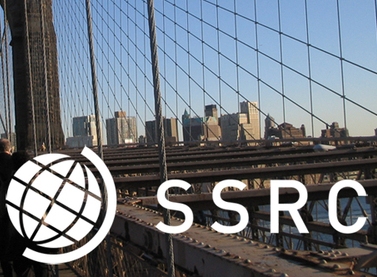The program, currently in its second year, responds to a shortage of well-trained faculty now reaching crisis proportions in African higher education. The Next Generation Social Sciences in Africa program offers fellowships to nurture the intellectual development and increase retention of early-career faculty in Ghana, Nigeria, South Africa, Tanzania, and Uganda. Applications are now being accepted.
The program features three distinct competitive fellowship opportunities for early-career social science faculty who hold positions in accredited colleges and universities:
* Doctoral dissertation proposal fellowship: Supporting short-term research costs of up to US$3,000 to develop a doctoral dissertation proposal.
* Doctoral dissertation research fellowship: Supporting 9-12 months of dissertation research costs of up to US$15,000 on a topic related to peace, security, and development.
* Doctoral dissertation completion fellowship: Supporting a one-year leave from teaching responsibilities with a stipend of up to US$15,000 to permit the completion of a dissertation that advances research on peace, security, and development topics.
Eligibility:
All applicants must be citizens of and reside in a sub-Saharan African country while holding a current faculty position at an accredited college or university in Ghana, Nigeria, South Africa, Tanzania, or Uganda. Applicants for any of the funding opportunities offered through this program must have a master's degree and be
working toward completion of a doctoral degree. The program seeks to promote diversity and encourages women to apply.
Additionally:
* To be eligible for the US$3,000 dissertation proposal fellowship, applicants must be admitted to a PhD program by the start date of the fellowship program and working to develop a dissertation proposal.
* To be eligible for the US$15,000 dissertation research fellowship, applicants must have an approved dissertation proposal but will not yet have undertaken substantial research (typically ix or more months).
* To be eligible for the US$15,000 dissertation completion fellowship applicants must be in the final year of writing and will have completed at least one chapter.
Thematic Priority:
The program encourages innovative research on peace, security, and development topics. We envision supporting a diverse set of projects grappling with a range of processes using evidence-based research. Some, we hope, will examine large-scale phenomena and others small-scale social processes, so that some applicants, for example, might propose projects exploring global flows of refugees across country borders and continents while others might look at street theater in refugee camps. Similarly, some fellows might test
the proposition that global financial markets contribute to peace and stability, while others might examine the role of local market culture in unstable regions. Above all, projects should advance important fields of study and social science knowledge.
Application Process:
Strong proposals will offer clear and concise descriptions of the project and its significance. Proposals should display thorough knowledge of the relevant social science literature that applicants will engage and the methodologies relevant to the project.
In addition, applicants must demonstrate that all proposed activities are feasible and can be completed in a timely manner. All proposals will be evaluated for these criteria by an independent, international committee of leading scholars from a range of social science disciplines.
All applications must be submitted using the online application portal. The portal can be accessed at http://soap.ssrc.org/
As many as 45 fellowships are expected to be awarded each year.
Deadline:
The next application deadline is December 1, 2012.
For inquiries or technical questions pertaining to the online application portal, please contact SSRC staff from the Next Generation Social Sciences in Africa Program: nextgenafrica@ssrc.org.
This program is funded by Carnegie Corporation of New York.


 General1 week ago
General1 week ago
 Natural Sciences2 weeks ago
Natural Sciences2 weeks ago
 Agriculture & Environment1 week ago
Agriculture & Environment1 week ago
 Health2 weeks ago
Health2 weeks ago
 Health2 weeks ago
Health2 weeks ago


